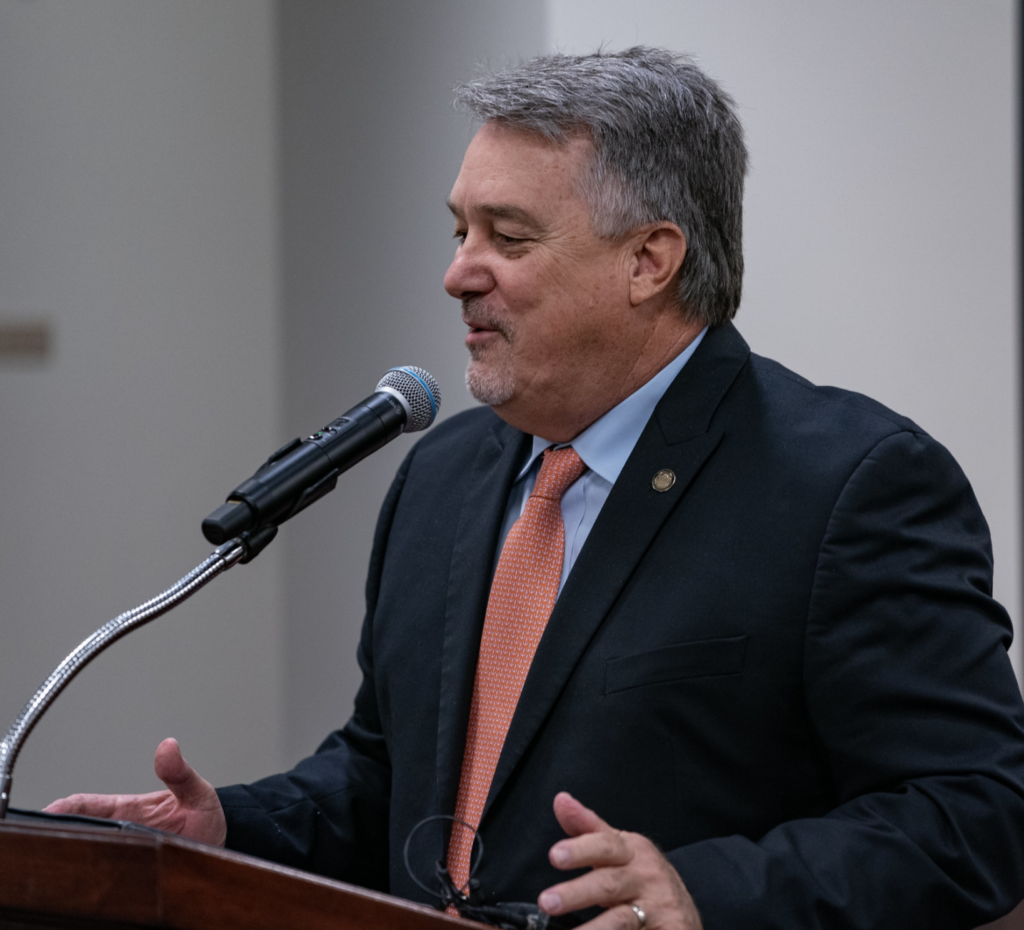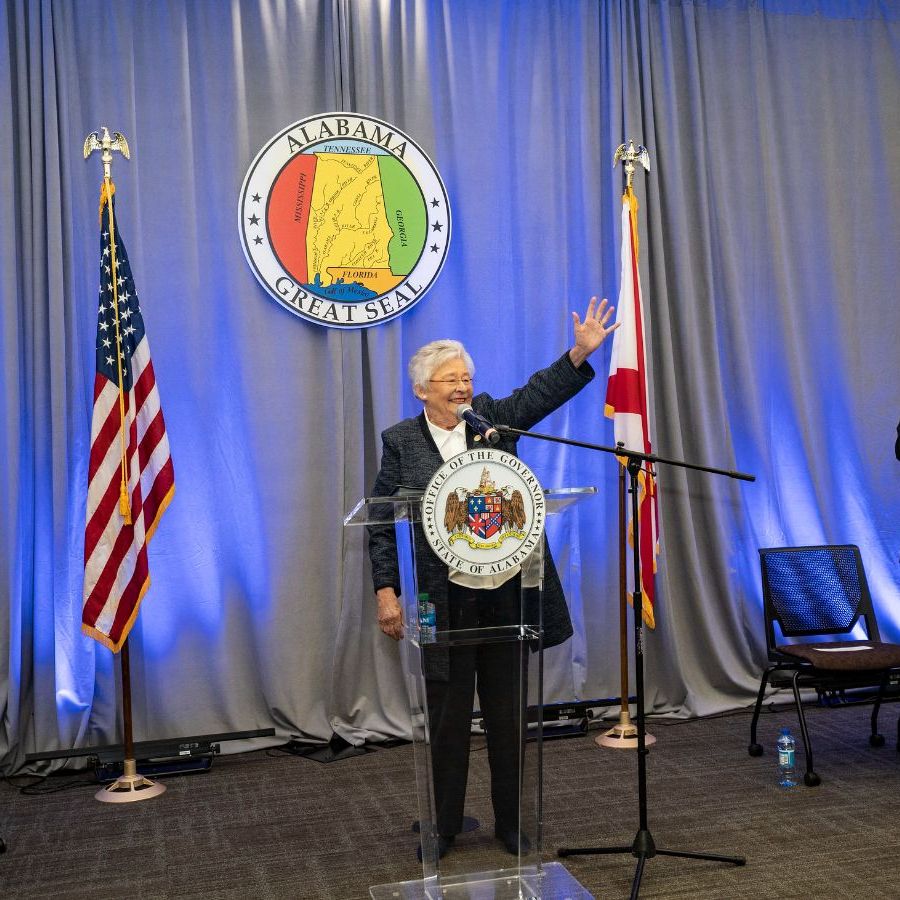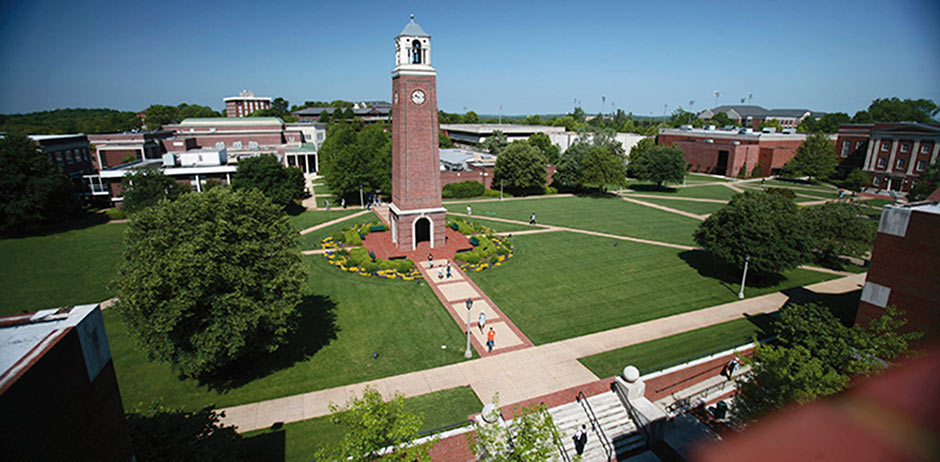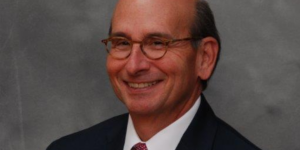Alabama Power warns Alabamians to be ready for extremely cold temperatures

Christmas in Alabama is a time for family and throwing footballs in the backyard. Some years, Christmas lunch could be served out on the patio, but not this year. We are approaching a holiday weekend with a forecast for frigid temperatures beginning before dawn on Friday, December 23. Alabama Power Company is advising people to be prepared for the freezing weather. ABC 33/40 TV meteorologist James Spann warned that temperatures will drop into the 5-12 degree range Friday morning across North/Central Alabama, with a wind chill index as low as -15F. The wind chill index will stay below zero most of the day Friday. For many places in North Alabama, it will be Monday, December 26, before temperatures climb over 32 degrees for many communities across North Alabama. Be ready for over 72 consecutive hours of sub-freezing weather. Alabama Power said in a release that the company has made smart investments in our power grid today so they can continue to provide customers with the service they expect – both now and in the decades to come. That includes investments in a diverse energy mix to maintain high levels of reliability for customers during extreme temperatures. Alabama Power says that its team is continuing to monitor changing weather conditions and is working to be prepared for extreme weather. Alabama Power said that the severe cold has the potential to increase electricity bills. The Alabama Power Company offers a variety of resources and tips to make homes energy-efficient during times of increased usage while also maintaining safety and comfort. By making a few easy adjustments and changing some habits, customers can keep costs down while keeping their homes warm. “We encourage customers to visit Cold Weather Tips | Alabama Power to find valuable ways to save money on their electricity bill,” the press release stated. “Small but smart changes can add up to big savings.” Spann warned that for Alabama, this will be the coldest airmass since 2018 and the most prolonged Arctic outbreak since at least 2014. It is the coldest December airmass since 1989. To connect with the author of this story, or to comment, email brandonmreporter@gmail.com.
Nathaniel Ledbetter makes more staff appointments

State Rep. Nathaniel Ledbetter, the House Republican Caucus’s choice to be the next Speaker of the Alabama House, announced on Tuesday several appointments for the Speaker’s office staff. “Running the day-to-day operations of the speaker’s office effectively is key to ensuring that the House remains on track and the members remain informed,” Ledbetter said. “Each of these men and women have proven themselves to be able administrators in the past, and I know that they will work hard to serve the members of the House on both sides of the aisle as well as the taxpayers across Alabama.” Ledbetter has already announced that Mark Tuggle will remain as the Speaker’s Chief of Staff. Tuggle previously served as a Republican State Representative from Alexander City. Jade Wagner, a DeKalb County native who currently resides in Montgomery, will serve as Ledbetter’s deputy chief of staff. Since 2017, she was previously employed by Ledbetter in the office of the House majority leader, where she served as policy director. Ledbetter will retain Andrew Westcott of Pike Road as general counsel and policy director in the Speaker’s office, a post he has held since 2015. Before joining the Speaker’s staff, Westcott was employed by the Alabama Law Institute. Rob Green is a Jasper native. He will hold the title of director of communications and external affairs. Green previously served as policy analyst under Speaker Mac McCutcheon. Geen recently returned from a leave of absence after working with the campaign team that successfully maintained the Republican supermajority in the Alabama House. Daisy Goza of Millbrook will follow Ledbetter to the Speaker’s office. She will serve as Ledbetter’s executive assistant and scheduler, the same role she filled during his service as House majority leader. Holley Knowles of Montgomery will remain on staff as the Speaker’s constituent services specialist. These appointments are not official until Ledbetter is elected by the full body as Speaker of the House; however, since Republicans hold a 77 to 28 supermajority in the Alabama House of Representatives, it is extremely likely that the House Republican Caucus choice for Speaker of the House will be elected as such during the organizational session of the Alabama Legislature in January. During the recent election, the Republican Supermajority successfully defended all but one of its 77 seats from the last quadrennium. State Rep. Charlotte Meadows was unseated by her Democratic challenger. However, Democratic incumbent Rep. Dexter Grimsley of Abbeville was also unseated by his Republican challenger; thus, there is no net change in the political composition of the legislature even though there was unusually high turnover in the members overall. Ledbetter is the former Mayor of Rainsville. Ledbetter was elected to the Alabama House of Representatives in 204. Speaker McCutcheon elected to not run again for the state legislature. To connect with the author of this story, or to comment, email brandonmreporter@gmail.com.
Kay Ivey awards $2.65 Million to fight homelessness

Alabama Governor Kay Ivey announced on Tuesday that she has awarded $2.65 million in grant money to help Alabamians who are homeless or at risk of becoming homeless obtain shelter and other related services. “Helping others in need is the Alabama way, and our folks’ unrelenting desire to do so is one of the many things that makes our state so special,” said Governor Ivey. “Unfortunately, homelessness is a very real issue facing our communities, and it’s on us as Alabamians to change that. I’m proud to allocate these funds towards ensuring those less fortunate have a safe, warm shelter to spend the holidays.” The funds come from federal dollars through the Emergency Solutions Grants program. The money will assist twelve governments and nonprofit organizations in providing shelter, legal and health services, and other assistance to help individuals and families who face losing their homes or are already homeless. The Alabama Department of Economic and Community Affairs (ADECA) is administering the grants from funds made available by the U.S. Department of Housing and Urban Development. ADECA administers an array of programs supporting law enforcement and traffic safety, economic development, energy conservation, water resource management, and recreation development. “Emergency Solutions Grants are intended to help people with immediate and often temporary needs,” said ADECA Director Kenneth Boswell. “I join Governor Ivey in commending these local governments and other agencies who are providing that helping hand to individuals and families who are going through rough times.” The City of Florence will receive $300,000 to contract with Safeplace Inc., the Community Action Agency of Northwest Alabama, and the Salvation Army to offer homelessness prevention assistance, rapid re-housing, and related services to residents in Colbert, Franklin, Marion, Lauderdale, Lawrence and Winston counties. The City of Huntsville was $400,000 to contract with AshaKiran Inc., Catholic Center of Concern, Community Action Partnership of Huntsville/Madison and Limestone Counties Inc., Crisis Services of North Alabama, Disabled American Veterans, Family Services Center, First Stop, North Alabama Coalition for the Homeless, New Futures Inc. and Wellstone Inc. to provide services in Huntsville. Marshall County Home Place Inc. in Guntersville will receive $31,500 to provide emergency shelter in Marshall County. The Right Place for Housing and Support in Anniston was awarded $200,000 to provide street outreach, emergency shelter, and housing assistance for persons in Calhoun, Cherokee, DeKalb, and Etowah counties. Second Chance in Anniston will receive $200,000 to provide emergency shelter and rapid re-housing for domestic violence victims and their families in Calhoun, Cherokee, Cleburne, Etowah, Randolph, and Talladega counties. The Link of Cullman County will receive $250,000 to provide emergency shelter, homelessness prevention, street outreach, and rapid re-housing for victims in Cullman County. YWCA of Central Alabama in Birmingham was awarded $200,000 to provide emergency shelter, homelessness prevention, and rapid re-housing for domestic violence victims in Blount, Jefferson, and St. Clair counties. The Shelby County Commission was awarded $150,148 to contract with Family Connections, SafeHouse of Shelby County Inc., and Shelby Emergency Assistance to provide emergency shelter, homelessness prevention, and rapid re-housing for residents in Shelby County. The Montgomery Area Coalition for the Homeless (also known as the Mid-Alabama Coalition for the Homeless) received an award of $350,000 to contract with Family Promise of Montgomery, Montgomery Area Family Violence Program (also known as the Family Sunshine Center), Friendship Mission Inc. and Hands On River Region to provide street outreach, homelessness prevention and rapid re-housing for persons in Autauga, Bullock, Elmore, Lowndes and Montgomery counties. SAN Inc. (the Turning Point in Tuscaloosa) was awarded $100,000 to provide emergency services and rapid re-housing for victims of domestic violence in Bibb, Fayette, Hale, Lamar, Pickens, and Tuscaloosa counties. The Salvation Army in Mobile and Baldwin counties was awarded a $300,000 grant to provide emergency shelter for people in those two counties. Penelope House Inc. in Mobile received $177,000 to provide emergency shelter for domestic violence victims in Mobile County. Kay Ivey is one of the most popular governors in the nation. To connect with the author of this story, or to comment, email brandonmreporter@gmail.com.
Legislators seek a bailout of Birmingham Southern College

Members of the Jefferson County Legislative delegation met on Monday at Birmingham Southern College (BSC) to discuss their proposal to take $30 million of state dollars and give that to the struggling liberal arts college near Legion Field in Birmingham. The meeting was called by State Sen. Jabo Waggoner and State Rep. Jim Carns. “This plan includes a $30 million one-time infusion from the State of Alabama ($12.5 million from ARPA and $17.5 million from the Education Trust Fund). Along with smaller grants from the City of Birmingham ($5 million) and Jefferson County ($2.5 million), this infusion will cover projected deficits through May 31, 2026,” Waggoner and Carns wrote. “Without support from the state, the college will not be able to continue to operate past May 2023. Without a commitment from the state, the college will need to notify high school seniors that they will no longer be accepting applications by the middle of January.” The college released a statement acknowledging the dire straits that the school faces. “Over the past 18 months, BSC President Daniel Coleman has secured firm commitments from hundreds of private donors for $45 million toward a goal of raising $200 million by May 2026 to refresh its endowment fund. This is a remarkable demonstration of support for BSC and a reflection of the fact that the college is important—not only to Birmingham but to the State of Alabama. In order to allow sufficient time for this fund-raising effort to succeed and to give BSC breathing room to operate, we are seeking a one-time contribution of $12.5 million from the second tranche of the American Rescue Plan Act and $17.5 million from the Education Trust Fund (ETF). BSC is also asking for a commitment of $5 million from the City of Birmingham and $2.5 million from Jefferson County. We believe Birmingham-Southern College’s contributions to the greater Birmingham area and the state warrant such an investment, which is clearly permissible under state law and for which there is considerable precedent.” Coleman briefed legislators on his plan. “We believe with the time that the state funds will give us, we can gain support from the other 16,000 graduates we have not contacted as well as the many thousands of people and organizations of this state who appreciate the value of this College,” Coleman said. “Our target of $200 million of pledges by May 2026 is achievable, especially with our $45.5 million head start. Such an endowment will give us the financial stability that this college needs to thrive.” The administration blames its current financial distress on a “building program in the mid-2000s that drew heavily upon the endowment and caused the college to take on significant debt. The financial crisis of 2008-2009 and an error in the accounting of federal financial aid further depleted the college’s resources.” At the meeting on Monday, State Sen. Rodger Smitherman and State Rep. Juandalynn Givan added their bipartisan support to the bailout of the private college. “This is the urgency of now,” said Rep. Givan. “To lose Birmingham-Southern would be a travesty for all of us.” When Judson College in Marian County ran into financial trouble, the Legislature allowed the college to fail in 2021. Some Judson alums have asked why the state would bail out BSC and did nothing to save Judson. Birmingham-Southern College was founded back in 1898 as Birmingham College. Most of its students come from Alabama, and 28% self-identify as either African-American or Hispanic. In addition to potential state support, the school will need to raise about $150 million more to be back on its feet by 2026. At the meetings, the legislators said they plan to present their plan to bail out the struggling private liberal arts college to Alabama Governor Kay Ivey in the coming weeks. To connect with the author of this story, or to comment, email brandonmreporter@gmail.com.
State closes all waters to oyster harvesting on Friday

The Alabama Department of Conservation and Natural Resources (ADCNR) Marine Resources Division (MRD) announced on Monday that all public water bottoms will close to the harvest of oysters at 2 p.m. on Friday, December 23, 2022. The Alabama oyster harvest began on October 3, 2022. ADCNR said that the cooperation between MRD, the Alabama Department of Public Health, commercial oystercatchers, and seafood dealers continues to move the oyster resources in Alabama in a positive direction. “This season has been very successful and built on the successes of the previous three years,” said Scott Bannon, MRD Director. “There was a notable increase in the number of catchers working on the public reefs this season. We anticipated the number of sacks harvested to be nearly equivalent to last season. That is what we have seen this year, but with a lot more people reaping the benefits. Last season the average number of catchers per day was around 120. This season it was 164, with as many as 243 catchers reporting their harvests on a single day. That is the highest level of participation I have seen in my 25 years with the Division. Many days the harvest exceeded 1,200 sacks per day, with the highest amount being 1,353 sacks – that’s nearly 115,000 pounds of oysters. Management zones were opened to harvest for 61 days. During that time, nearly 44,000 sacks of oysters were harvested, totaling almost 3.7 million pounds with an approximate dockside value of more than $3 million. “Utilizing our harvest grid system, we were able to monitor small areas and appropriately close them for sustainability while keeping harvesters working more days in other locations,” Bannon said. “Accurate harvest reporting was a vital part of the season’s length. I appreciate the reporting efforts of the harvesters and the efforts of our staff to effectively monitor and manage the season. The dockside price paid per pound of oysters remained relatively high, which means money in the pockets of harvesters. That is good for the families and economy of south Mobile County.” MRD is utilizing several new survey techniques to assist with developing pre-season harvest estimates and work toward restoring and maintaining Alabama’s oyster reefs so that oysters can be enjoyed for generations to come. ADCNR MRD closed some waters early, sparking some complaints from fishermen. Bannon said the closure was necessary to rebuild the state’s population of the bivalve. “Unfortunately, there’s just not enough oyster harvest available to do a longer season and to maintain that,” Bannon told the television station. “We would love to do that. We’d love to keep Alabama product in the market longer; we would love for them to be working longer and making good money.” ADCNR promotes wise stewardship, management, and enjoyment of Alabama’s natural resources through four divisions: Marine Resources, State Lands, State Parks, and Wildlife and Freshwater Fisheries. To connect with the author of this story, or to comment, email brandonmreporter@gmail.com.
January 6 panel urges Donald Trump prosecution with criminal referral

The House January 6 committee urged the Justice Department on Monday to bring criminal charges against Donald Trump for the violent 2021 Capitol insurrection, calling for accountability for the former president and “a time of reflection and reckoning.” After one of the most exhaustive and aggressive congressional probes in memory, the panel’s seven Democrats and two Republicans are recommending criminal charges against Trump and associates who helped him launch a wide-ranging pressure campaign to try to overturn his 2020 election loss. The panel also released a lengthy summary of its final report, with findings that Trump engaged in a “multi-part conspiracy” to thwart the will of voters. At a final meeting Monday, the committee alleged violations of four criminal statutes by Trump, in both the run-up to the riot and during the insurrection itself, as it recommended the former president for prosecution to the Justice Department. Among the charges they recommend for prosecution is aiding an insurrection — an effort to hold him directly accountable for his supporters who stormed the Capitol that day. The committee also voted to refer conservative lawyer John Eastman, who devised dubious legal maneuvers aimed at keeping Trump in power, for prosecution on two of the same statutes as Trump: conspiracy to defraud the United States and obstructing an official proceeding. While a criminal referral is mostly symbolic, with the Justice Department ultimately deciding whether to prosecute Trump or others, it is a decisive end to a probe that had an almost singular focus from the start. Chairman Bennie Thompson, D-Miss., said Trump “broke the faith” that people have when they cast ballots in a democracy and that the criminal referrals could provide a “roadmap to justice” by using the committee’s work. “I believe nearly two years later, this is still a time of reflection and reckoning,” Thompson said. “If we are to survive as a nation of laws and democracy, this can never happen again.” Wyoming Rep. Liz Cheney, the panel’s Republican vice chairwoman, said in her opening remarks that every president in American history has defended the orderly transfer of power, “except one.” The committee also voted 9-0 to approve its final report, which will include findings, interview transcripts, and legislative recommendations. The full report is expected to be released on Wednesday. The report’s 154-page summary, made public as the hearing ended, found that Trump engaged in a “multi-part conspiracy” to overturn the election. While the majority of the report’s main findings are not new, it altogether represents one of the most damning portraits of an American president in recent history, laying out in great detail Trump’s broad effort to overturn his own defeat and what the lawmakers say is his direct responsibility for the insurrection of his supporters. The panel, which will dissolve on January 3 with the new Republican-led House, has conducted more than 1,000 interviews, held ten well-watched public hearings, and collected more than a million documents since it launched in July 2021. As it has gathered the massive trove of evidence, the members have become emboldened in declaring that Trump, a Republican, is to blame for the violent attack on the Capitol by his supporters almost two years ago. After beating their way past police, injuring many of them, the January 6 rioters stormed the Capitol and interrupted the certification of Joe Biden’s presidential election win, echoing Trump’s lies about widespread election fraud and sending lawmakers and others running for their lives. The attack came after weeks of Trump’s efforts to overturn his defeat — a campaign that was extensively detailed by the committee in its multiple public hearings and laid out again by lawmakers on the panel at Monday’s meeting. Many of Trump’s former aides testified about his unprecedented pressure on states, federal officials, and Mike Pence to object to Biden’s win. The committee has also described in great detail how Trump riled up the crowd at a rally that morning and then did little to stop his supporters for several hours as he watched the violence unfold on television. The panel aired some new evidence at the meeting, including a recent interview with longtime Trump aide Hope Hicks. Describing a conversation she had with Trump around that time, she said he told her that no one would care about his legacy if he lost the election. Hicks told the committee that Trump told her, “The only thing that matters is winning.” Trump’s campaign did not immediately respond to a request for comment, but the former president slammed members of the committee Sunday as “thugs and scoundrels” as he has continued to falsely dispute his 2020 loss. While a so-called criminal referral has no real legal standing, it is a forceful statement by the committee and adds to political pressure already on Attorney General Merrick Garland and special counsel Jack Smith, who is conducting an investigation into January 6 and Trump’s actions. On the recommendation to charge Trump with aiding an insurrection, the committee said in the report’s summary that the former president “was directly responsible for summoning what became a violent mob” and refused repeated entreaties from his aides to condemn the rioters or to encourage them to leave. For obstructing an official proceeding, the committee cites Trump’s relentless badgering of Vice President Mike Pence and others to prevent the certification of the election results on January 6. And his repeated lies about the election and efforts to undo the results open him up to a charge of conspiracy to defraud the United States, the panel said. The final charge recommended by the panel is conspiracy to make a false statement, citing the scheme by Trump and his allies to put forward slates of fake electors in battleground states won by President Joe Biden. Among the other charges contemplated but not approved by the committee was seditious conspiracy, the same allegation Justice Department prosecutors have used to target a subset of rioters belonging to far-right groups like the Oath Keepers and Proud Boys. Thompson said after the hearing that the seditious conspiracy charge is “something that the committee didn’t come to agreement on.” The panel was formed in the summer
Justin Bogie: The truth behind Alabama’s ‘most conservative Legislature’ ranking

According to a recent ranking from the Conservative Political Action Coalition’s (CPAC) Center for Legislative Accountability (CLA), Alabama’s state Legislature was the most conservative in the United States in 2021. Alabama scored a total of 74 out of 100 points, edging out Tennessee and Indiana for the top spot. Based on the past four years, does this come as a surprise to you? It does to me. The CLA identified local empowerment and education as two of the “strongest issues” for the Alabama Legislature. This alone should be enough to raise questions about the validity of the rankings. As is well documented, Alabama has perhaps the longest and most complicated constitution in the world. Of nearly 1,000 constitutional amendments, over 750 apply to only one county. This is the direct result of local governments and the citizens they represent not being empowered to make their own decisions. On education, Alabama consistently ranks near the bottom in national test scores. Few Alabamians would say that it is a strength statewide. On average, the CLA found that 74% of the monitored votes cast during the 2021 regular legislative session to be conservative positions. The question we should be asking though, is what votes were considered in the ranking, and just as, if not more importantly, what votes were not used in calculating the scores? The CLA used voting records for 44 bills to determine that Alabama was the most conservative Legislature in 2021. If you consider similar bills introduced separately between the House and Senate, the list of individual issues is much smaller. Moreover, many of the bills selected by the CLA did not actually become law. There were a total of 1,500 bills introduced during the 2021 session. The bills chosen by the CLA were heavily weighted towards election integrity, protecting the rights of the unborn, transgender issues, and second amendment rights. In other words, they focused primarily on social issues. That is not to say that none of these bills are important, but can you really declare a Legislature to be the most conservative in the country without a more diverse sampling of bills? Most people would agree that Alabama is a socially conservative state. But being socially conservative does not equate to the state exhibiting conservative behavior in all aspects. Without a closer examination, the CLA rankings would lead you to that conclusion. Some of the bills used by the CLA include the legalization of nighttime hunting of coyotes and feral swine, permitting wineries to operate in dry counties, and allowing restaurants to determine whether dogs can be allowed in outdoor dining areas. I am sure that these issues are important to some Alabamians, but are they the most important issues to most Alabama voters? I would think not. Missing from the list were any bills dealing with Alabama’s state budgets, spending, and taxes. If they had been included, my guess is the rankings would have come out quite differently. Despite the dubious methods used to calculate Alabama’s number-one ranking, lawmakers were quick to pat themselves on the back. Senate President Pro Tem Greg Reed (R-Jasper) said, “Since the Republicans assumed majority in 2010, it has been our focus to fight to keep our conservative values that this country was based on.” House Speaker-designate Nathaniel Ledbetter (R-Rainsville) (who ranked 57th in the House) added that “Most Alabamians believe strongly in traditional values and commonsense conservative policies, and the bills and resolutions we pass as lawmakers mirror those widely held beliefs and values.” Over the past four years, Alabama’s state government spending increased by about 36%, a faster growth rate than California or New York, who ranked 47th and 44th on the CLA list, respectively. California’s score was 24 out of 100, 50 points lower than Alabama’s. Given that Alabama is growing government at a faster rate than California, the difference in the two states’ scores is puzzling, to say the least. Again, the CLA took no consideration of tax policy in its rankings. In 2021 Alabama’s government took $1.5 billion more in taxes from citizens than it needed to cover state budget expenses. Less than 5% of that surplus found its way back to citizens in the form of targeted permanent tax cuts. Yet Alabama is supposedly the most conservative Legislature in the country? Despite Alabama’s top ranking, the CLA identified taxes, budget, and spending as the state’s weakest issues. Yet Sen. Reed said, “As a result of our fiscal conservative policies we have implemented, Alabama has one of the strongest economies in the nation. I am proud of this recognition and to serve with my colleagues in continuing to protect and promote the conservative Alabama values that define this great state.” Taking and spending more of Alabamians’ money than at any point in recorded history does not represent “conservative Alabama values.” It is the opposite of what many Alabamians believe in, regardless of what the CLA’s rankings say. The problem with rankings like these is that too many people will simply read the headline and assume everything is going great. Lawmakers hope that is what you will do so that they can continue the historic expansion of Alabama’s state bureaucracy unchecked. It is our duty as citizens to do our own due diligence and separate fact from fiction. The consequences are too great to bury our heads in the sand and accept the status quo. Justin Bogie serves as the Alabama Policy Institute’s Senior Director of Fiscal Policy.
States appeal to Supreme Court to keep immigration limits

Conservative states pushing to keep limits on asylum-seekers put in place during the beginning of the coronavirus pandemic are appealing to the U.S. Supreme Court in a last-ditch effort before the limits are set to expire. But with the immigration restrictions going away on Wednesday, it’s unclear if the Supreme Court will intervene. The nineteen states Monday asked the court for an emergency stay that would keep Title 42 in place. “This Court’s review is warranted given the enormous national importance of this case. It is not reasonably contestable that the failure to grant a stay will cause an unprecedented calamity at the southern border,” the states wrote in their request. The immigration restrictions, often referred to as Title 42, were put in place under then-President Donald Trump in March 2020 and have prevented hundreds of thousands of migrants from seeking asylum in the U.S. in recent years. But as they’re set to expire, thousands more migrants are packed in shelters on Mexico’s border with the U.S. Immigration advocates sued to stop the use of Title 42 to limit who can apply for asylum, saying that the policy goes against American and international obligations to people fleeing to the U.S. to escape persecution. And they’ve argued that things like vaccines and treatments for the coronavirus have made the policy outdated. Conservative-leaning states have argued that lifting of Title 42 will lead to a surge of migrants into their states and take a toll on government services like health care or law enforcement. They also charge that the federal government has no plan to deal with an increase in migrants. With a Republican-controlled House set to take charge in early January, the imminent lifting of the pandemic-era restrictions has become a hot-button political issue. The D.C. Circuit Court of Appeals rejected efforts by 19 conservative-leaning states late Friday to intervene in the case, saying they’d waited too long, leading the states to appeal to the Supreme Court. Republished with the permission of The Associated Press.


